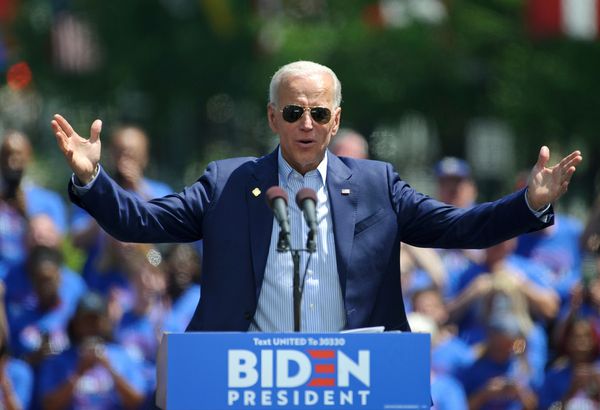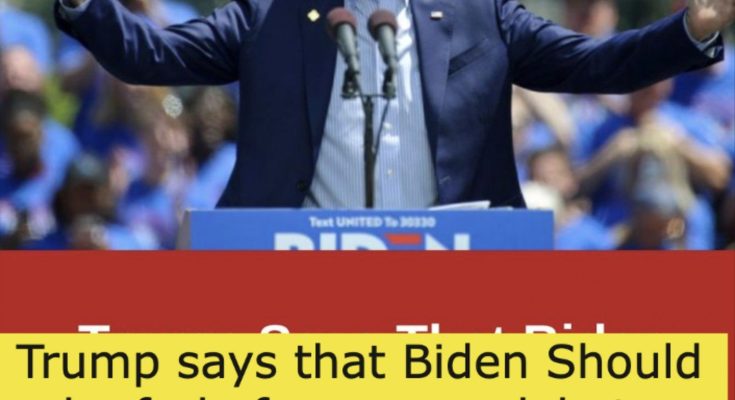In a recent interview, former President Donald Trump caused a stir by suggesting that President Joe Biden should undergo a drug test before participating in presidential debates later this year. Trump’s comments have raised eyebrows and sparked controversy.

During the interview with conservative host Hugh Hewitt, Trump insinuated that Biden might be a cocaine user, based on his observations from the State of the Union address. “I think debates, with him, at least, should be drug tested. I want a drug test,” Trump emphasized, emphasizing his desire for transparency in the electoral process.
Trump’s remarks were triggered by his perception of Biden’s behavior during the State of the Union address. He claimed that Biden seemed “jacked up” at the beginning but later showed signs of fatigue. Trump also linked his suspicion to an incident last July when the Secret Service discovered cocaine in the White House.
However, critics have pointed out the lack of concrete evidence to support Trump’s claims and have raised concerns about the appropriateness of making such allegations without substantial proof. Trump refrained from making a direct accusation but maintained his stance on the need for a drug test.
Beyond the issue of drug use, Trump criticized Biden’s State of the Union address, deeming it the “worst” he had ever seen. He questioned Biden’s representation of the nation and suggested that the president was receiving some form of assistance during the speech.
Trump’s comments have reignited discussions about the nature of political discourse and the ethical boundaries surrounding public statements made by former presidents. The controversy surrounding his remarks highlights the challenges of conducting civil discourse in a polarized political climate.
As the debate continues, it remains to be seen how Trump’s remarks will influence discussions surrounding the upcoming presidential debates and the broader political landscape.



